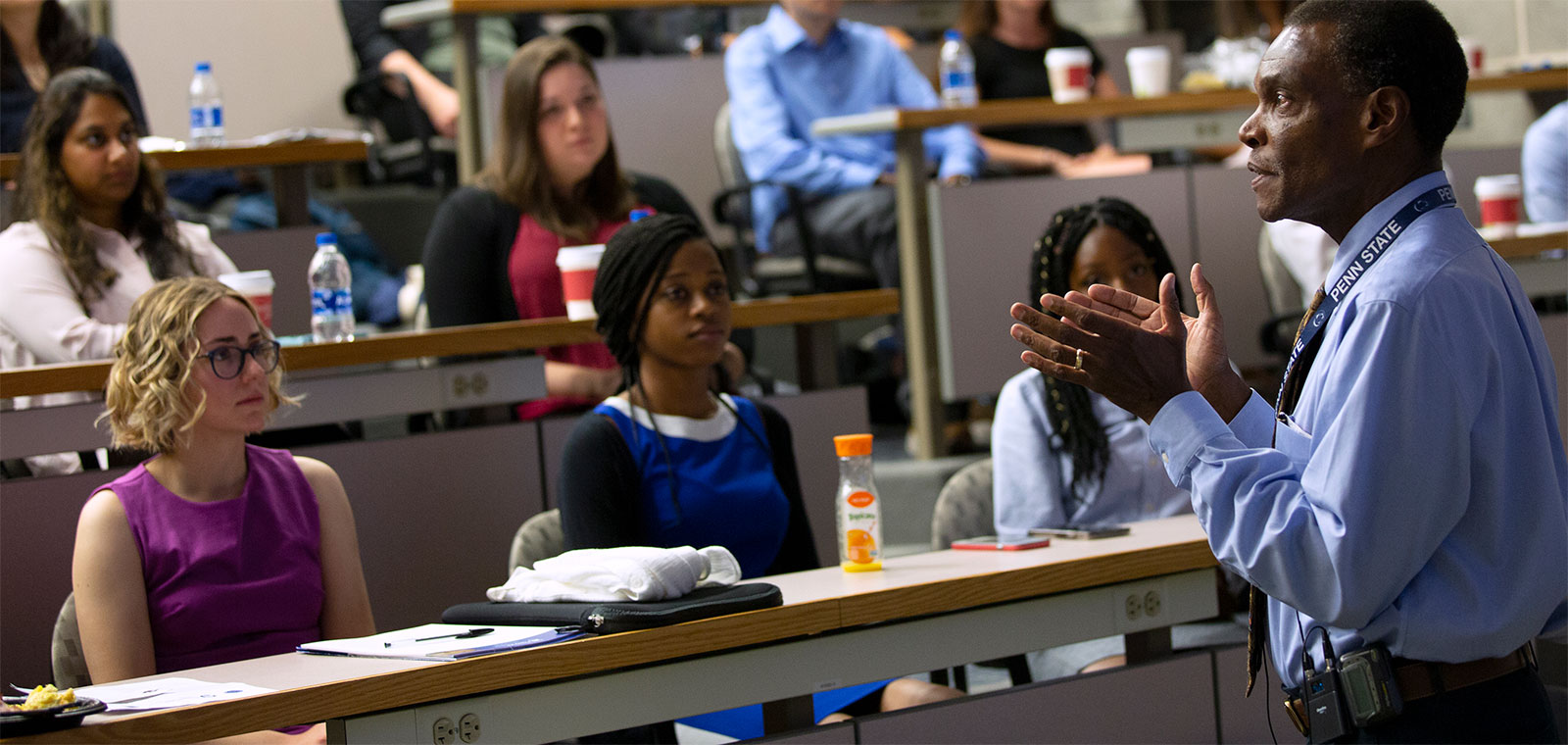MD Program - Hershey Campus

Medical Education at Hershey
The vision of the MD Program is to guide the development of a humanistic, systems-ready physician who is adaptive, critical-thinking, collaborative and scholarly.
Program of Study
Learner-Centered, Integrated Curriculum
The practice of medicine is constantly changing. Many of these changes are part of a transformation that will alter the way healthcare is organized and delivered in the future.
The three-phase curriculum is learner-centered and has been developed to prepare students for a successful career in a more integrated healthcare system. Graduates will meet all of the required competencies and subcompetencies.
The committee on undergraduate medical education, composed of faculty and students, meets regularly to evaluate and modify the curriculum to keep pace with new knowledge and changes in healthcare delivery.
Learn More
Emphasis on Humanities
Penn State College of Medicine was the first medical school in the United States to have a dedicated humanities department, and this focus is reflected in our curriculum, which emphasizes health, medicine, ethics, and the illness experience in its social contexts, with a broad focus on social justice.
- Phase 1: Four foundational courses in critical health humanities: Foundations of Health Humanities, Observation and Interpretation, Humanities in Context and Communication
- Phase 2: Humanities Across Clerkships
- Phase 3: Humanities Seminar Selective (required). Recently offered courses include:
- Jazz and the Art of Medicine
- Graphic Storytelling
- Race and Social (In)Justice
- Pandemics
The Department of Humanities supports the Gold Humanism Honor Society, a peer-nominated honor society for fourth-year students, and an arts and literature journal, Wild Onions, as well as student arts workshops. Funds from Humanities endowments support student research in the humanities.
Societies
A supportive community is powerful, especially in a rigorous learning environment like medical school. At the College of Medicine, four learning communities — called Societies — provide a way for students and faculty to connect, encourage, and learn from each other.
Each Society has a faculty Society head, approximately seven to eight Society advisors (each clinical faculty member is assigned to five first-year, five second-year, five third-year and five fourth-year students), College of Medicine alumni (both within the College and from the community), and two to three basic science faculty.
Contact Us
For more information, contact 717-531-8755 or StudentAdmissions@pennstatehealth.psu.edu.
